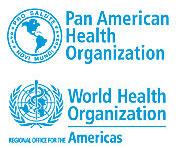|

|
 |
|
Last Updated: Nov 12, 2020 - 6:32:09 AM |
 Robust disease surveillance, contact tracing and prioritizing primary health care are among key measures to reduce transmission Robust disease surveillance, contact tracing and prioritizing primary health care are among key measures to reduce transmission
Washington, D.C., (PAHO) – The Pan American Health Organization (PAHO) today outlined best practices in a guide to help countries decide which measures to implement to control the COVID-19 pandemic and for how long, based on how the virus spreading and the characteristics of their health systems.
“We are hopeful that with this guidance, countries will be better able to tailor their responses to their individual needs, as their caseload changes overtime,” PAHO’s Assistant Director Jarbas Barbosa told a media briefing. The updated guidance, developed by WHO and PAHO, covers “Considerations for implementing and adjusting public health and social measures in the context of COVID-19.”
“As we await an effective vaccine and better treatments against COVID-19, countries should expect to see a series of recurring outbreaks, so they would always need to be ready to act. The key has always been to ensure that our public health responses are adaptive to the moment. Only then can we ensure that a few new cases don’t develop into full blown outbreaks,” Dr Barbosa said.
The best practices include robust disease surveillance to detect spread of the virus and fine tune a response, contact tracing to limit the spread of the virus, prioritizing primary health systems to provide care for people where needed, and having surge medical teams on call for emergencies. “Keeping the virus under control requires both constant commitment and proactive adjustments to ensure our national responses reflect changing trends,” he said.
A mosaic of different scenarios
Noting that 22 million people in the Americas have been infected with COVID-19 and more than 660,000 have died, Barbosa said the virus is still surging, with 150,000 cases reported daily. In North America, states in the U.S., Canada and Mexico are experiencing spikes in cases, but some countries in the Caribbean, Central America, and South America are doing better than others.
Barbosa warned that the situation in Europe “should serve as a cautionary tale to the Americas. It proves that even after controlling COVID-19 infections, countries are still vulnerable to a resurgence of the virus.”
Shifting from total lockdowns to lifting all restrictive measures is “unsustainable and ineffective at controlling this virus,” and each country, city and community needs to adjust its public health response according to local scenarios, Barbosa said.
Best practices in the Americas
“Effective epidemic surveillance systems allowed Chile to bounce back after unprecedented spikes earlier this year by tailoring its public health measures, locality by locality,” he noted, and Caribbean countries, using strong laboratory surveillance systems, “have been disciplined about imposing restrictions and tightening public health measures when there have been new infections, while also keeping tourism afloat.”
Contact tracing, adjusted to the patterns of transmission, is being done well in Argentina, Costa Rica and Jamaica, Barbosa said. Canada and Brazil placed priority on primary health care and adjusted their health work forces to meet growing demand, while Cuba and Costa Rica ensured care for people through their strong universal health coverage systems, he added.
Barbosa said that most countries in the America formed emergency medical teams to provide surge capacity when needed. “We saw this in Uruguay and Peru, where internal teams were deployed to virus hot spots to care for patients and relieve the burden on local clinics and hospitals. In the Americas more than 165 emergency medical teams were deployed domestically by the countries, enabling health services to expand by almost 17,000 inpatient beds and 1,500 critical care beds, which have been crucial to saving lives in remote areas,” he explained.

© Copyright 2020 by thebahamasweekly.com
Top of Page
|
|
 |

|
